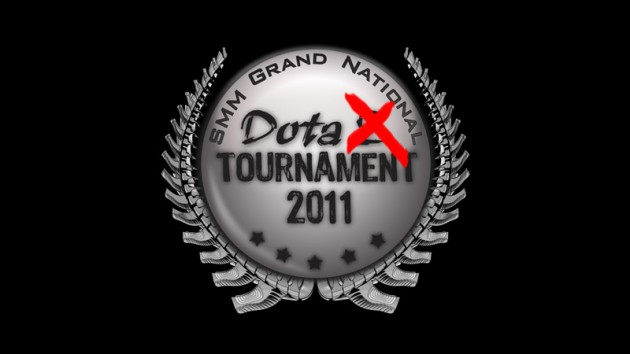When Sendi Mutiara Multimedia launched the SMM Grand National Dota Tournament in 2006, it was a domestic tournament catering primarily to gamers from Malaysia. Today, the now five-year-old tournament’s reputation and prize pool attracts participation from teams located from all across the Asia-Pacific, and even as far away as Europe and North America.
Despite its apparent longevity and its place as one of the landmark events in the Asian esports calendar, the SMM Dota tournament will almost certainly come to an end in December once this year’s edition has concluded. This may come as a shock to Dota fans, but if you connect the dots, it’s easy to see that the writing has been on the wall for at least a week now.
The first indicator came nearly two weeks ago, when Asiasoft announced that it had secured the rights to distribute all of Blizzard’s games in Singapore, Malaysia and Thailand. Don’t see the link? Well, the reason SMM is able to fund its Grand National Dota Tournament every year is because it rakes in a handsome amount of money through its retail distribution operations and cyber café licensing rights for Blizzard games in Malaysia. Without those rights, SMM loses a critical business driver behind its annual Dota tournament.
When I first received the Asiasoft press release, I realised the implications that this had on the SMM tournament. I immediately sent an email to Asiasoft asking if they intended to partner with SMM to distribute Blizzard’s games in Malaysia, just as the previous regional distributor IAH Games had done before. The reply spelt doom for SMM: “Asiasoft will be handling the retail sales for Malaysia. However, the plans for competitive gaming with Blizzard’s titles are yet to be finalized and hence we can’t comment on that right now.”
The second indicator came last week, when e-Club Malaysia announced a Southeast Asian promotional tour for Dota 2. Industry insiders have known for some time that SMM was bidding for the regional distribution and licensing rights for Dota 2, and SMM’s move to switch this year’s SMM grand finals to Dota 2 seemed to indicate that they had at least gained a foothold in the negotiations. e-Club’s announcement all but buries speculation that SMM is making headway on its Dota 2 bid — it’s highly unlikely e-Club would go ahead with the spending for the Dota 2 tour unless they already secured the rights for the game.
Left without the distribution or licensing rights for Blizzard’s games (WarCraft III in particular) and Dota 2, SMM no longer has a reason to organise its annual Dota tournament. To do so would only be spending its own money to promote another company’s products; certainly not something any profit-oriented business would be inclined to do.
So what could the end of the annual SMM Grand National Dota Tournament mean for Dota fans, besides the immediate loss of a major Dota tournament?
For fans of Dota Allstars, there is the possibility of Asiasoft organising a spiritual successor to the SMM Grand National Dota Tournament. Asiasoft already has the contacts, capability and experience to do so. For years now, Asiasoft has been organising large public events, including its own annual Asiasoft GameFest. The company is no stranger to competitive gaming as well, having organised nation-wide competitions for Sudden Attack in Singapore, Malaysia and Thailand.
More importantly, through their @Cafe program, Asiasoft already has access to an extensive network of cyber cafes in Malaysia. As long as cybercafe gamers continue to play Dota, cyber cafes will continue to license WarCraft III from Asiasoft — and this will give Asiasoft a real business incentive, as well as the money, to keep the Dota community strong for as long as it can through events and tournaments.
For fans of Dota 2, the picture is similar, with slight differences. e-Club Malaysia, by virtue of being the licence holder for all of Valve’s games, also has access to an extensive network of cyber cafes in Malaysia. The company is also no stranger to competitive gaming, having sponsored many smallish tournaments through its Asian Cyber Games brand. However, unlike Asiasoft, e-Club is not known for organising massive tournaments on the same scale as SMM.
To overcome this deficiency, e-Club has partnered with Rapture Gaming to tap on Rapture’s experience in organising major regional events, such as the World Cyber Games Asian Championship and The Games Xpo convention. This partnership has already bore fruit in the form of the Southeast Asian Dota 2 promotional tour, and if successful, we may well see big events and tournament in the region for Dota 2 in the coming years.






Have your say. Add your comments: